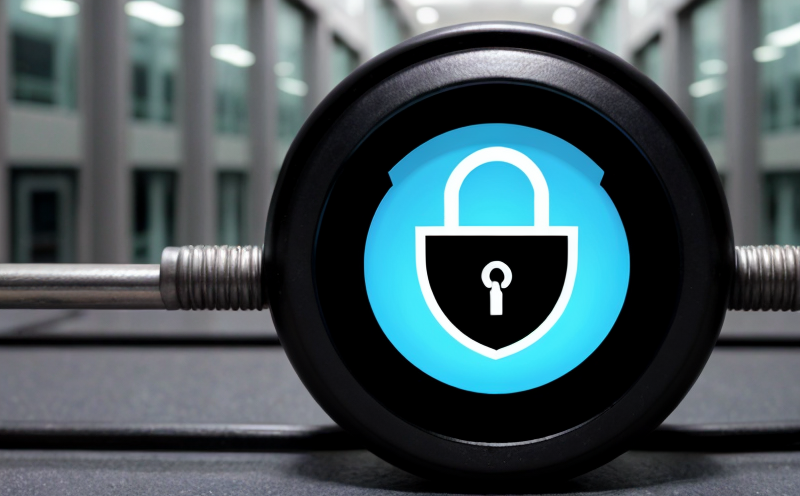Security Audits & Compliance Frameworks
The concept of security audits and compliance frameworks is central to maintaining robust cybersecurity measures in a technology-driven world. These audits and frameworks are designed to ensure that organizations meet the necessary standards, regulations, and best practices for protecting sensitive data and ensuring operational integrity.
In today's digital landscape, where cyber threats continue to evolve, it is crucial for businesses to stay ahead of potential vulnerabilities. Security audits serve as a proactive approach to identifying risks and weaknesses within an organization’s cybersecurity posture. Compliance frameworks provide the necessary guidelines that organizations must adhere to in order to avoid legal repercussions and maintain trust with stakeholders.
A security audit typically involves a thorough examination of an organization's information systems, networks, policies, and procedures. This process helps uncover any gaps or vulnerabilities that could be exploited by malicious actors. The audit team will evaluate various aspects such as access controls, encryption methods, firewalls, intrusion detection systems, and other critical components.
Compliance frameworks like ISO/IEC 27001:2013 provide a structured approach for managing information security risks. By adhering to these standards, organizations can demonstrate their commitment to protecting sensitive data and maintaining operational continuity. Other relevant frameworks include NIST SP 800-53 Rev4, which offers detailed guidance on controlling and managing risk across IT systems.
Our comprehensive security audit services encompass a wide range of assessments tailored specifically for different sectors such as healthcare, finance, government agencies, and more. For instance, in the healthcare industry, HIPAA compliance is paramount due to stringent data protection requirements; similarly, financial institutions must comply with PCI-DSS standards to safeguard cardholder information.
At our laboratory, we utilize cutting-edge tools and methodologies to conduct these audits effectively. Our team comprises certified professionals who possess deep knowledge of cybersecurity best practices and regulatory expectations. They employ a multi-faceted approach combining manual reviews, automated scanning technologies, penetration testing exercises, and vulnerability assessments.
Scope and Methodology
| Aspect | Description |
|---|---|
| Data Collection | We gather information from various sources including network logs, system configurations, policy documents, etc. |
| Vulnerability Scanning | This involves using specialized software to detect potential weaknesses in the IT infrastructure. |
| Penetration Testing | A simulated attack scenario designed to identify exploitable flaws within the security framework. |
| Policy Review | An examination of existing cybersecurity policies and procedures for alignment with current standards. |
| Methodology | Description |
|---|---|
| Baseline Assessment | A comprehensive overview of the current state of cybersecurity measures in place. |
| Risk Evaluation | Determining the likelihood and impact of identified risks on business operations. |
| Action Plan Development | Crafting recommendations for remediation based on findings from previous steps. |
| Continuous Monitoring | Implementing ongoing surveillance to track improvements and address new threats promptly. |
Industry Applications
| Industry Sector | Description of Application |
|---|---|
| Healthcare | Ensuring compliance with HIPAA regulations to protect patient data integrity. |
| Fintech | Adhering to PCI-DSS standards for secure handling of payment card information. |
| Government Agencies | Meeting FISMA requirements to safeguard classified and unclassified information. |
| Telecommunications | Complying with GDPR regulations concerning the processing of personal data. |
The applications of security audits extend beyond these sectors, impacting virtually every industry that relies heavily on technology for operations. By conducting regular assessments and maintaining strict adherence to relevant frameworks, organizations can mitigate risks associated with unauthorized access, data breaches, and other cyber threats.
Customer Impact and Satisfaction
- Reduction in security incidents through proactive identification of vulnerabilities.
- Affirmation of compliance with legal requirements, enhancing reputation among clients and stakeholders.
- Enhanced protection against potential data breaches, thereby minimizing financial losses.
- Increased confidence in the organization's ability to maintain secure IT environments.
- Improved operational efficiency by streamlining security processes and reducing downtime due to incidents.
Customer satisfaction is a key metric for our service excellence. Organizations that engage with us report improved trustworthiness, reduced risk exposure, and greater peace of mind regarding their cybersecurity posture.





